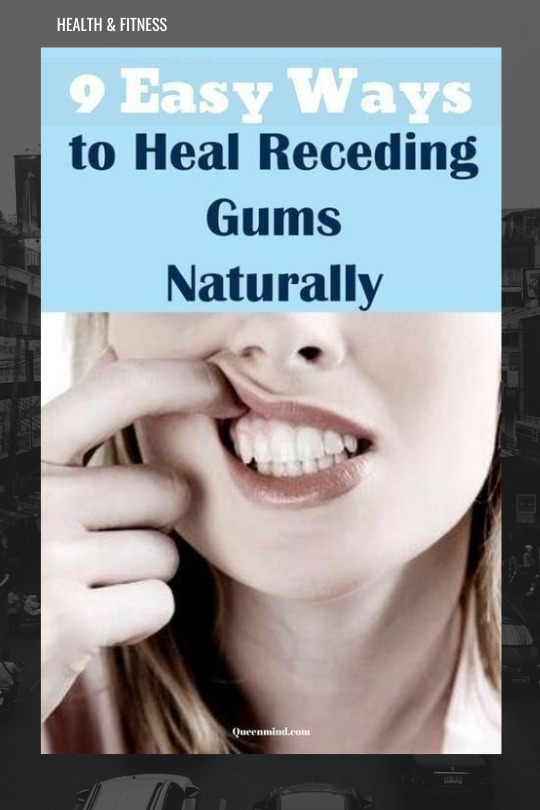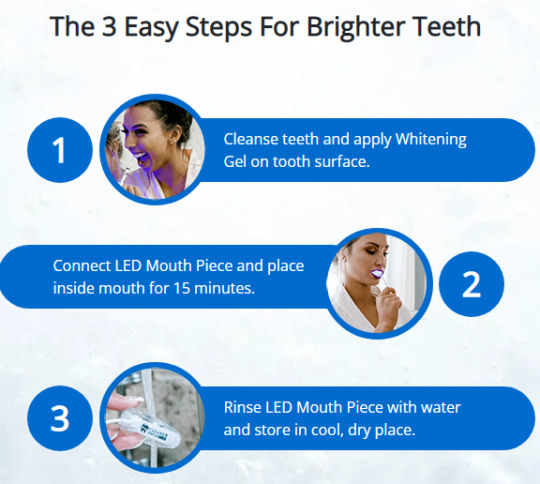#@dentalhealth
Text
The Importance of Dental Care: Understanding Dental Causes and the Benefits of Gum Cleaning
Dental health is crucial for our overall well-being. Neglecting dental care can lead to various dental problems such as cavities, gum disease, and tooth loss, which can severely impact our quality of life. In this blog post, we will discuss the importance of dental care and how it can prevent dental causes from arising. We will also look into the benefits of gum cleaning and how it can keep our teeth healthy.
Dental Causes
Dental causes can be classified into two types: those caused by external factors and those caused by internal factors. External factors include poor dental hygiene, unhealthy food habits, and tobacco use. Internal factors include genetic factors and certain medical conditions such as diabetes and heart disease.
Poor dental hygiene is one of the most common external factors that lead to dental causes. Failure to brush and floss regularly can result in the formation of plaque and tartar, which can cause cavities and gum disease. Unhealthy food habits, especially those high in sugar and carbohydrates, can also contribute to the formation of plaque and tartar.
Tobacco use is another external factor that can cause dental problems. Smoking and chewing tobacco can lead to stained teeth, bad breath, and gum disease. Tobacco use also increases the risk of oral cancer.
Genetic factors and certain medical conditions can also contribute to dental causes. For example, people with diabetes are more likely to develop gum disease. People with heart disease may require antibiotics before undergoing dental procedures to prevent bacterial infections.
Dental Care
Dental care is essential for preventing dental causes from arising. It involves maintaining good dental hygiene, eating a healthy diet, and avoiding tobacco use. Regular visits to the dentist can also help prevent dental problems.
Good dental hygiene includes brushing and flossing regularly to remove plaque and tartar. It is recommended to brush at least twice a day for two minutes each time. Flossing should be done at least once a day to remove plaque and food particles from between teeth.
Eating a healthy diet is also important for dental care. Foods high in sugar and carbohydrates should be avoided, as they can contribute to the formation of plaque and tartar. Foods that are high in calcium, such as dairy products, can help strengthen teeth and prevent cavities.
Avoiding tobacco use is also important for dental care. Smoking and chewing tobacco can cause a range of dental problems, including stained teeth, bad breath, and gum disease. Quitting tobacco use can improve dental health and overall health.
Dental Flash
Regular visits to the dentist can help prevent dental causes from arising. Dentists can identify dental problems early on and provide treatment before they worsen. They can also provide dental cleaning services to remove plaque and tartar.
Dental cleaning services, also known as dental flash, involve removing plaque and tartar from teeth and gums. This process helps prevent gum disease and cavities. Dental cleaning services can also improve the appearance of teeth by removing surface stains.
Gum Cleaning
Gum cleaning, also known as gum scaling or periodontal scaling, is a dental cleaning service that focuses on removing plaque and tartar from below the gum line. This process helps prevent and treat gum disease.
Gum disease is a common dental problem that occurs when plaque and tartar build up below the gum line, causing inflammation and infection. Symptoms of gum disease include red, swollen, and bleeding gums, bad breath, and tooth loss.
Gum cleaning can help prevent and treat gum disease by removing the plaque and tartar that cause it. The process involves using special tools to remove the buildup of plaque and tartar from below the gum line. Gum cleaning may be done in conjunction with dental cleaning services.
0 notes
Text
#oralhealth#dentist#dentistry#smile#dental#teeth#dentalcare#teethwhitening#dentalhygiene#cosmeticdentistry#oralhygiene#dentalhealth#dentalhygienist#oralcare#dentalclinic#tooth#dentalimplants#orthodontics#dentista#health#healthyteeth#smilemakeover#veneers#invisalign#dentistryworld#odontologia#braces#dentalassistant#dentistrylife#oralsurgery
10 notes
·
View notes
Text
#toothache#dentist#dentistry#dental#teeth#tooth#toothpain#teethwhitening#oralhealth#smile#dentalcare#dentalhealth#dentalemergency#rootcanal#dentalclinic#toothdecay#teethcleaning#dentalimplants#emergencydentist#cosmeticdentistry#oralhygiene#rootcanaltreatment#toothbrush#invisalign#health#toothextraction#healthyteeth#braces#dentalhygiene#dentalhygienist
6 notes
·
View notes
Text
#oralhealth#dentist#dentistry#smile#dental#teeth#dentalcare#teethwhitening#dentalhygiene#cosmeticdentistry#oralhygiene#dentalhealth#dentalhygienist#oralcare#dentalclinic#tooth#dentalimplants#orthodontics#dentista#health#healthyteeth#smilemakeover#veneers#invisalign#dentistryworld#odontologia#braces#dentalassistant#dentistrylife#oralsurgery
5 notes
·
View notes
Text

Sending warm wishes and prayers for a joyous Bakri Eid. May Allah's blessings be with you today and always. 🕌🌼
📌 Book your appointment today!
📞 9861259365
🌐 www.parthasdentalclinic.com
📍Near KIITS Square, opposite HP Petrol Pump
#eidmubarak#eid2024#greatsmile#prettysmile#patiabhubaneswar#dental#clinic#eidaladha#eiduladha#muslims#dentalcare#dentalhealth#dentalimplants#dentalclinic#dentistry#dentist#teethwhitening#oralhealth#bhubaneswardentist#bhubaneswar#bhubaneswardentalcare#dentalclinicbhubaneswar
2 notes
·
View notes
Text
Managing Double Diabetes: A Comprehensive Guide to Type 1 and Type 2 Diabetes
Managing Double Diabetes: A Comprehensive Guide to Type 1 and Type 2 Diabetes
https://www.youtube.com/watch?v=DuzR3_rOxH4
Learn about the unique challenges faced by individuals living with both type 1 and type 2 diabetes, and explore effective strategies for managing double diabetes. Discover the link between insulin resistance and metabolic issues in type 1 diabetes and gain insights into prevention and treatment options. #DoubleDiabetes #Type1andType2Diabetes #InsulinResistance #MetabolicIssues #DiabetesManagement #PreventionandTreatment #HealthandWellness #MetabolicHealth #InsulinDeficiency #LifestyleChanges
via Dr Steven Lin https://www.youtube.com/channel/UC3usB3s0qqOo4wImv3fgf5A
April 24, 2024 at 01:04AM
#dentalhealth#drstevenlin#thedentaldiet#nutrition#oralwellness#preventivedentistry#hormonehealth#weightlossjourney#diabetesmanagement
5 notes
·
View notes
Text
Maintaining Healthy Teeth

Healthy teeth are not only essential for a beautiful smile but also for overall well-being. From preventing cavities to supporting proper digestion, the importance of dental health cannot be overstated.
#teeth#dentalhealth#dentalcare#dentures#smilemakeover#teeth whitening#gnashing of teeth#teethcare#powerbite#teethcaretips
2 notes
·
View notes
Text




दांत दर्द के कई कारण हो सकते हैं जैसे बैक्टीरिया का संक्रमण, कैल्शियम की कमी या कमजोर मसूड़े। अगर दांत के दर्द से होगये हैं परेशान तो अपना लें ये नुस्खे😮
#toothache#dentist#dentistry#dental#teeth#tooth#toothpain#teethwhitening#oralhealth#smile#dentalcare#dentalhealth#dentalemergency#rootcanal#dentalclinic#toothdecay#teethcleaning#dentalimplants#oralhygiene#health#toothextraction#healthyteeth#braces#dentalhygiene#medixic#healthylifestyle#natural
2 notes
·
View notes
Text
Dr. Amit Joshi is the best dentist in Aurangabad, India! He offers a wide range of dental services, including preventive care, restorative care, and cosmetic dentistry. Dr. Joshi is known for his gentle touch and his dedication to providing his patients with the best possible care. If you are looking for a dentist in Aurangabad, Dr. Joshi is the best choice.
#rootcanal#dentalimplant#teethwhitening#orthodontics#periodontics#aurangabad#dentist#dentistry#dentalcare#preventivecare#restorativedentistry#cosmeticdentistry#bestofaurangabad#india#drjoshi#dentalhealth#smile#healthylifestyle#best dentist in Aurangabad
2 notes
·
View notes
Text
Dental Implant
The dental implant procedure: What you need to know
If there is one aspect of oral care that most people are not particularly fond of, it is dentistry. The process of dental implants, however, does not come with any such discomfort. If you want to implant teeth into your jawbone, there is a high chance that you’ll be able to chew food again without chewing gum. That’s because the jawbone has been improved by dentists through dental implants.
Unlike tooth replacement surgery or dental crowns, dental implants are designed to function as permanent teeth. In fact, dentists often prescribe dental implants for those who have lost teeth or in cases where teeth need extensive restoration work. Discovering the basics of dental implants and how they help improve oral health will ensure that you are well-prepared for the procedure and its postoperative period.
Types of dental implants
Dental implants are a long-term solution for replaceable teeth. They are titanium screw implants that are placed into the jawbone to support artificial teeth. There are three types of dental implants: screw, spring, and self-retaining.
Screw implants are a popular option because they can support teeth of different sizes and shapes. The implant is screwed into the jawbone, which provides stability and support for artificial teeth. Once in place, the implant can gum tissue and bone around it to form a strong connection between teeth and jawbone. This type of implant is considered a permanent denture alternative as it doesn't require any crowns or dentures after healing.
Spring dental implants have gained popularity as they offer several benefits over traditional implants. These implants have a flexible titanium frame that supports artificial teeth. A crown or denture can then be attached to the frame when healing is complete. This type of implant is known to provide more stabilization than traditional implants. Self-retaining dental implants are similar in function to self-ligating dental crowns, which are denture attachments that don't require surgical placement. These types of dental implants provide an easy way to replace missing teeth without surgery or antibiotics.
Technically, all types of dental implants are safe and relatively painless. However, complications such as tooth loss or jawbone death may occur with any tooth replacement procedure. So, dentist should always be consulted before opting for dental implantation as this procedure may not be suitable for everyone.
After the dental implant surgery is over, what should you do?
After the dental implant surgery is over, you should follow the steps listed above to care for your implant. At this point, you should clean the area around the implant with mild soap and water. This will help remove any blood or saliva that may have accumulated. After surgery, you may experience some discomfort or pain. To help with healing, you should apply a bandage to the area around the implant. You can use a bandage made of gauze or other material to provide support and healing protection as necessary.
You can also use a cold pack to provide temporary relief from pain and discomfort. After using a cold pack, it's important to keep your implant clean and dry until the bandage or dressing falls off. You can use a new dressing or bandage as needed. Following these steps will help ensure your healing goes smoothly and your implant stays healthy and functioning for years to come.
Dental implant complications
Dental implant complications are rare, but they can occur if the implant is not placed carefully or if it fails. When an implant fails, it can lead to dental problems such as jawbone loss or pain. Bone infections after dental implant surgery are also possible, as are complications such as jawbone death and tooth failure. Resorption is when dental implant material is slowly removed by natural processes after surgery.
If a dentist suspects that your dental implant may have moved out of place, he or she will most likely take steps to correct the problem. A dentist may also recommend additional dental implants or bone grafting for jawbone loss due to dental implants.
If you experience any of these complications after a dental implant procedure, speak with your dentist as soon as possible to determine the best course of action for you.
How to prevent dental implant surgery complications?
The dental implant procedure is a highly effective way to replace missing teeth. However, it isn't without its risks. One of the potential complications of dental implant surgery is infection. In rare cases, dental implant surgery may lead to jawbone infection, sinusitis, or other complications related to jawbone healing.
You should be familiar with the various steps of the dental implant procedure and follow them carefully for optimal healing. Also, be sure to inform your dentist of any health conditions you have and inform them of any changes in your oral health care. If you experience any dental implant surgery complications, do not hesitate to seek professional assistance.
Frequently Asked Questions
What are the risks and benefits of dental implant surgery?
There are a number of potential risks and benefits associated with dental implant surgery, depending on the type of implant being installed.
Some of the risks associated with dental implant surgery include infection, nerve damage, and damage to the surrounding teeth. However, the majority of these risks can typically be managed if proper care is taken during the surgery.
The most common benefits of dental implant surgery include restored chewing and speaking ability, increased confidence, and improved appearance.
Conclusion
Getting dental implants is an excellent way of strengthening teeth and replacing missing teeth. However, there are a few things that you should keep in mind. One of them is the fact that implants are artificial teeth, and as such, they will not be able to provide natural-looking teeth. They must be placed in the jawbone to function properly. Also, implants are not a substitute for dental care. You must keep up with oral hygiene and visit your dentist regularly for checkups and cleanings to ensure your implants are functioning properly.
0 notes
Text
#toothache#dentist#dentistry#dental#teeth#tooth#toothpain#teethwhitening#oralhealth#smile#dentalcare#dentalhealth#dentalemergency#rootcanal#dentalclinic#toothdecay#teethcleaning#dentalimplants#emergencydentist#cosmeticdentistry#oralhygiene#rootcanaltreatment#toothbrush#invisalign#health#toothextraction#healthyteeth#braces#dentalhygiene#dentalhygienist
3 notes
·
View notes
Text

Here are 9 ways to naturally heal receding gums:
1. Good oral hygiene: Brushing and flossing regularly can help remove plaque and prevent gum disease.
2. Use a soft-bristled toothbrush: Hard-bristled toothbrushes can damage gums.
3. Warm salt water rinse: Rinsing with warm salt water can help reduce swelling and promote healing.
4. Aloe Vera: Aloe Vera has antibacterial properties and can help soothe irritated gums.
5. Oil pulling: Swishing oil in your mouth for several minutes can help reduce inflammation and improve gum health.
6. Green tea: Green tea has antioxidants that can help reduce inflammation and improve gum health.
7. Vitamin C: Vitamin C can help improve gum health by boosting the immune system.
8. Quit smoking: Smoking can worsen gum disease and slow down the healing process.
9. Avoid crunchy and sticky foods: These foods can damage gums and teeth.
#dentalhealth#dental#health#healthcare#dentistry#dentelle#teeth and gums#dr teeth#healthy gums#one million#health tips#health and medical
14 notes
·
View notes
Text
#1 Home Remedy to Remove Dental Plaque & Tarter to Prevent Cavities. Click here to remove Dental plague naturally
#1 Home Remedy to Remove Dental Plaque & Tarter to Prevent Cavities. Click here to remove Dental plague naturally
#dental#floss#dentalhygiene#dentalhygienist#dentalcare#suctiondental#dentalwork#dentalhealth#dentalhygenist#dentallife#predental#dentalpractice#dentalaesthetics#dentallab#dentalart#Dental floss#Tooth decay#Bad breath#Tooth plaque#Oral hygiene#Gingivitis#Cavities#Plaque removal#Halitosis#Dental hygiene
2 notes
·
View notes
Text

🦷 Suffering from Tooth Problems? Find Solutions Here! 🦷
Are you experiencing tooth problems and searching for effective solutions? We understand the discomfort and inconvenience dental issues can cause, so we're here to help you find the best remedies. 💪
Here's a list of common tooth problems and their corresponding solutions:
1️⃣ Toothache: If you're experiencing tooth pain, it's crucial to schedule an appointment with your dentist for a comprehensive examination. They will identify the root cause and provide appropriate treatment, which may include fillings, root canal therapy, or extractions if necessary.
2️⃣ Sensitivity: If you feel a sharp twinge when consuming hot or cold substances, you may have tooth sensitivity. Using desensitizing toothpaste and avoiding acidic foods can help alleviate the discomfort. Regular dental check-ups will also ensure any underlying issues are promptly addressed.
3️⃣ Gum disease: Gum problems can lead to swollen, bleeding, or receding gums. Maintaining good oral hygiene practices, such as regular brushing and flossing, is essential. Professional cleanings and treatments from your dentist can help prevent gum disease from progressing.
4️⃣ Tooth decay: Cavities can cause pain and affect the overall health of your teeth. Regular brushing, flossing, and limiting sugar intake are vital preventive measures. If tooth decay has already occurred, your dentist may recommend fillings, crowns, or other restorative treatments.
5️⃣ Missing teeth: Dental implants, bridges, and dentures are excellent options for replacing missing teeth. Consulting with a dental professional will help determine the most suitable solution for your specific needs.
Remember, prevention is key! Regular dental check-ups and maintaining good oral hygiene habits are essential steps in preventing tooth problems. 🚀
If you're looking for professional dental care and solutions, connect with our team today! Let us help you achieve a healthy and confident smile. 😁🌟
Website: www.sriramakrishnahospital.com
2 notes
·
View notes
Text

“This is the best teeth whitening product that I have tried, and nope, there are no false promises here! My whiter teeth are proof! I love this. It's effective, and the mouthpiece feels surprisingly comfortable when I wear it. No more experimenting and wasting money on whitening toothpastes, and powders for me. ”
You can find detailed informition here
#toronto#smdbeautyboutique#booknow#bleaching#beauty#houstonteethwhitening#happyclients#beautyservices#houstonlashextensions#houstonmua#dentalhealth#teethwhiteninghouston#htown#screwston#toothgems#slabsunday#swangaz#dentist#houstonbrows#health
10 notes
·
View notes
Text
Are Bully Sticks a Safe Choice for Your Puppy?

As a pet parent, you're always on the lookout for ways to keep your furry friend happy and healthy. One of the key aspects of this is providing them with the right kind of treats. This is especially important when your pet is a puppy, as their growing bodies need the right nutrients and their developing teeth need appropriate chew toys. One popular choice among dog owners is bully sticks. But the question that often arises is, "Are bully sticks OK for puppies?"
Bully sticks, also known as pizzle sticks, are a type of dog treat made from the dried and hardened penis of a bull. They're a favorite among many dogs due to their tough texture and savory flavor. However, as with any pet product, it's important to understand what you're giving your puppy and whether it's safe for them.
Importance of Choosing the Right Treats for Puppies

Choosing the right treats for your puppy is crucial for several reasons. Firstly, puppies have different nutritional needs compared to adult dogs. They require a balanced diet rich in protein, fats, and certain vitamins and minerals to support their rapid growth and development. Therefore, the treats you give your puppy should ideally contribute to their nutritional needs rather than just being empty calories.Read More about Bully Sticks and Puppies
Read the full article
#Bullystickalternatives#Bullysticks#Dentalhealth#Dogcare#Dogchews#Dogdentalhealth#Dogdiet#Dogfood#Doghealth#Dognutrition#Dogproducts#Dogsafety#Dogtraining#Dogtreats#petcare#Petfood#Pethealth#Petnutrition#Petproducts#petsafety#Puppycare#Puppychews#Puppydiet#Puppyfood#Puppygrowth#Puppynutrition#Puppyproducts#Puppysafety#Puppytraining#Puppytreats
2 notes
·
View notes